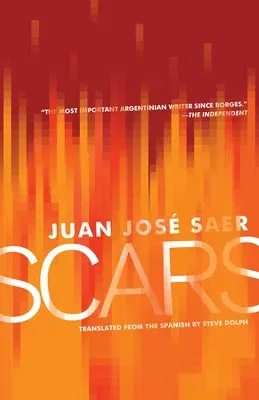The most important Argentinian writer since Borges.--The Independent
Juan José Saer's Scars explores a crime committed by Luis Fiore, a
thirty-nine year old laborer who shot his wife twice in the face with a
shotgun; or, rather, it explores the circumstances of four characters
who have some connection to the crime: a young reporter, Ángel, who
lives with his mother and works the courthouse beat; a dissolute
attorney who clings to life only for his nightly baccarat game; a
misanthropic and dwindling judge who's creating a superfluous
translation of The Picture Dorian Gray; and, finally, Luis Fiore
himself, who, on May Day, went duck hunting with his wife, daughter, and
a bottle of gin.
Each of the stories in Scars explores a fragment in time--be it a day or
several months--when the lives of these characters are altered, more or
less, by a singular event. Originally published in 1969, Scars marked
a watershed moment in Argentinian literature and has since become a
modern classic of Latin American literature.
Juan José Saer was the leading Argentinian writer of the post-Borges
generation. The author of numerous novels and short-story collections
(including Scars and La Grande), Saer was awarded Spain's
prestigious Nadal Prize in 1987 for The Event.
Steve Dolph is the founder of Calque, a journal of literature in
translation. His translation of Juan José Saer's Scars was a finalist
for the 2012 Best Translated Book Award.

